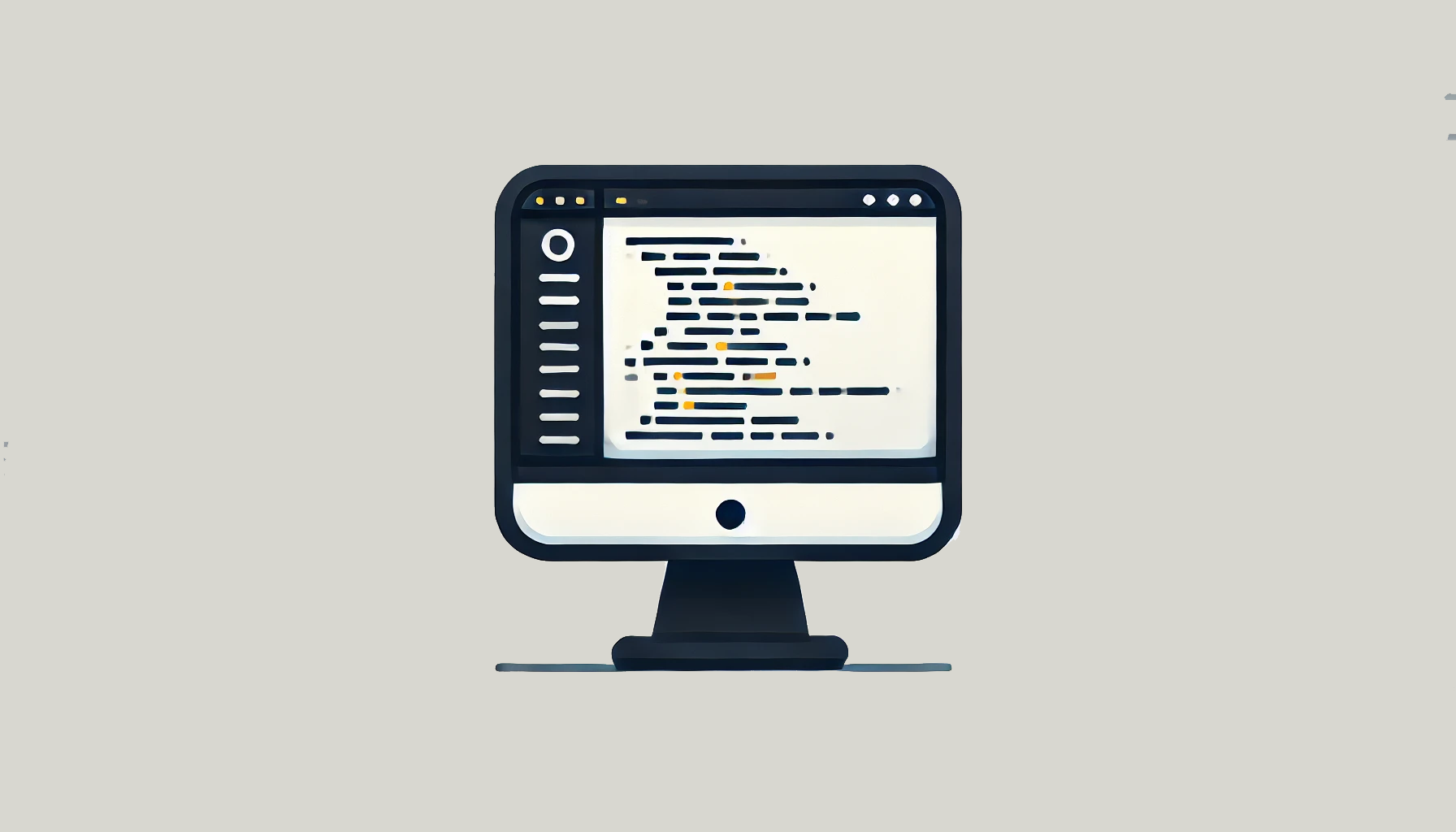Related courses
See All CoursesAdvanced
Java OOP
Those who know OOP can program well. That's what many programmers say. Get ready for an important part of your Java learning journey, mastering which will greatly boost your programming skills in general. You will learn how to effectively use the Java development environment, the principles of Object-Oriented Programming (OOP), and best practices in OOP. You will learn to make your code flexible and deepen your knowledge of previously covered topics. Let's get started!
Beginner
Java Basics
Learn the fundamentals of Java and its key features in this course. By the end, you'll be able to solve simple algorithmic tasks and gain a clear understanding of how basic console Java applications operate.
Intermediate
Java Classes and Core Mechanics
You will learn about best practices in coding, how to create your own methods and classes, and how to work with them and configure their interaction. You will also understand how Java works at the computer level and how code compilation generally works.
Top 10 Mistakes Every Programmer Makes
Navigating the Complexities of Java Programming

Java programming, while offering robustness and a wide array of features, also presents a landscape rife with potential pitfalls for both novice and seasoned developers. This detailed essay explores the top ten mistakes commonly made by Java programmers, weaving through the intricacies of each error and offering insights on best practices.
The Perils of Ignoring Exception Handling
One of the most critical areas where Java programmers often falter is in handling exceptions. Exception handling in Java is not just a means to handle errors but a powerful tool to control the flow of program execution and avoid unexpected crashes. The negligence in properly addressing exceptions, such as catching all exceptions with a generic catch(Exception e) statement, can lead to severe issues like data corruption, security vulnerabilities, and unresponsive applications. A robust exception-handling strategy involves specific catch blocks for known exceptions, finally, blocks for cleanup, and custom exceptions for better error management.
Misapplication of Object-Oriented Principles
Java, being an object-oriented language, hinges on the principles of object-oriented programming (OOP). However, a common mistake is the misapplication or misunderstanding of these principles. For instance, excessive use of inheritance can lead to a rigid and fragile code structure, often referred to as the "fragile base class problem." Instead, a more composition-centric approach, where objects are composed of other objects with desired behaviors, can lead to more flexible and maintainable code. Understanding and applying concepts like encapsulation, polymorphism, and abstraction appropriately is crucial to leveraging the full power of OOP in Java.
Overlooking Memory Leaks
Java's Garbage Collector is often mistakenly assumed to be a panacea for all memory management issues. However, memory leaks – scenarios where objects are no longer needed but still referenced – can still occur, leading to bloated memory usage and performance degradation. This issue is particularly prevalent with collection objects, such as lists and maps, where references to objects are held longer than necessary. Regular memory profiling, careful management of object references, and understanding the nuances of Java's memory model are essential to prevent such leaks.
The Inefficiencies in Collection Usage
The choice and use of collections in Java is another area fraught with mistakes. An incorrect choice, such as using an ArrayList for frequent insertions and deletions or a LinkedList for random access, can significantly impact performance. Understanding the underlying data structures of collections, their time complexity for various operations, and choosing the right collection type for the right scenario is a skill that Java programmers need to develop.

Run Code from Your Browser - No Installation Required

Concurrency Pitfalls
Java's concurrency model introduces another layer of complexity, where issues like thread interference and memory consistency errors can arise. A common mistake in this realm is the improper synchronization of shared resources, leading to erratic behavior and data inconsistencies. Understanding Java's concurrency utilities, like the synchronized keyword, locks, and concurrent collections, along with best practices for thread safety, is crucial to writing robust multithreaded applications.
Not Utilizing Modern Java Features
Java has evolved significantly, especially with the introduction of features like lambda expressions and the Stream API in Java 8. However, a reluctance to adopt these modern features often leads programmers to write more verbose and less efficient code. Embracing these newer features can lead to more concise, readable, and maintainable code, enhancing the overall quality of Java applications.
Disorganized Code and Poor Practices
Disorganization in code structure, lack of proper coding conventions, and poor practices like hardcoding values directly in the code are mistakes that often plague Java applications. These practices not only make the code less maintainable and harder to read but also introduce risks in terms of security and flexibility. Adhering to coding standards, using external configuration files, and writing clean, modular code are essential disciplines for a Java programmer.
Underestimating the Importance of Testing
Testing is an often underappreciated aspect of Java programming. Skipping thorough testing – be it unit, integration, or performance testing – can lead to unstable and bug-ridden applications. Leveraging testing frameworks like JUnit, writing testable code, and adopting practices like Test-Driven Development (TDD) are integral to the development lifecycle.
Neglecting the Value of Code Reviews
Code reviews are a critical part of the development process, offering opportunities for catching bugs, ensuring adherence to coding standards, and facilitating knowledge sharing. Neglecting this practice can allow subpar code to infiltrate the codebase, leading to technical debt and maintenance challenges.
Start Learning Coding today and boost your Career Potential

Inflexibility and Security Risks Through Hardcoding
Hardcoding values, especially sensitive data like credentials or configuration details, directly into the Java code is a severe mistake. It makes the application inflexible, difficult to update, and poses significant security risks. Using external configuration files, environment variables, or secure vaults for sensitive data is the recommended approach.
Learning Java the Right Way with Codefinity.com
To navigate these common pitfalls and master the art of Java programming, one needs a platform that provides comprehensive learning resources coupled with best practices. Codefinity.com stands out as such a platform, offering courses that range from Java fundamentals to advanced concepts. With an emphasis on writing correct, efficient, and bug-free code, Codefinity.com is an ideal learning destination for aspiring Java developers.
Developing a Deeper Understanding
As we wrap up this exploration of common Java programming mistakes, it's clear that avoiding these pitfalls requires a combination of knowledge, practice, and a commitment to continuous learning. Whether you are just starting out or looking to refine your Java skills, embracing best practices and learning from platforms like Codefinity.com can significantly enhance your programming journey.
FAQs
Frequently Asked Questions on Java Programming Mistakes
Q: How can beginners avoid common Java programming mistakes?
A: Beginners can avoid these mistakes by thoroughly understanding Java's core concepts, practicing coding regularly, and learning from experienced programmers' code. Using resources like Codefinity.com can also provide guided learning to avoid these common pitfalls.
Q: Is it necessary to use Java 8 features in every Java project?
A: While it's not necessary to use Java 8 features in every project, leveraging these features when appropriate can greatly enhance the efficiency and readability of your code.
Q: How can I ensure that my Java code is well-organized?
A: Organizing Java code effectively involves following best practices like using a consistent naming convention, modularizing code, and separating concerns. Regularly refactoring and reviewing code can also help maintain organization.
Q: Can automated testing completely eliminate the need for manual testing in Java?
A: Automated testing is crucial but cannot entirely replace the need for manual testing. Manual testing is essential for scenarios that are difficult to automate and for providing a human perspective on usability and functionality.
Q: What should I do if I find myself frequently hardcoding values in my Java code?
A: If you find yourself hardcoding values, consider using external configuration files, environment variables, or property management systems to externalize these values. This approach not only makes your code more flexible but also enhances security and maintainability.
Related courses
See All CoursesAdvanced
Java OOP
Those who know OOP can program well. That's what many programmers say. Get ready for an important part of your Java learning journey, mastering which will greatly boost your programming skills in general. You will learn how to effectively use the Java development environment, the principles of Object-Oriented Programming (OOP), and best practices in OOP. You will learn to make your code flexible and deepen your knowledge of previously covered topics. Let's get started!
Beginner
Java Basics
Learn the fundamentals of Java and its key features in this course. By the end, you'll be able to solve simple algorithmic tasks and gain a clear understanding of how basic console Java applications operate.
Intermediate
Java Classes and Core Mechanics
You will learn about best practices in coding, how to create your own methods and classes, and how to work with them and configure their interaction. You will also understand how Java works at the computer level and how code compilation generally works.
The SOLID Principles in Software Development
The SOLID Principles Overview
by Anastasiia Tsurkan
Backend Developer
Nov, 2023・8 min read

Top 25 C# Interview Questions and Answers
Master the Essentials and Ace Your C# Interview
by Ihor Gudzyk
C++ Developer
Nov, 2024・17 min read

30 Python Project Ideas for Beginners
Python Project Ideas
by Anastasiia Tsurkan
Backend Developer
Sep, 2024・14 min read

Content of this article